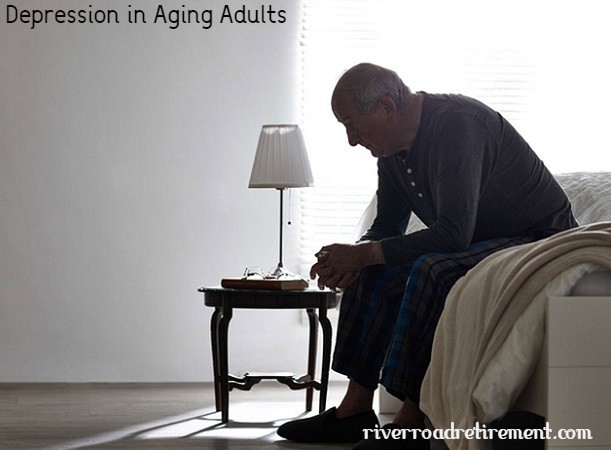What You Need to Know About Depression in Aging Adults
Clinical depression should not be confused with sadness. They are in no way the same. Depression can be triggered by grief or sorrow, be it due to the loss of someone close or other major life changes such as moving to an assisted living facility. It can also be caused by different medical conditions such as stroke, Alzheimer’s or chronic pain. Long-term alcohol use has also been linked to causing depression as people age. Clinical depression among seniors is fairly common, but individuals may display symptoms differently. If you think an aging loved one is displaying signs of depression but aren’t sure, don’t worry. Keep reading to find out what you need to know about clinical depression to understand it better and help your loved one cope.
Image Courtesy: aginginplace.org
Depression in Aging Seniors – Signs, Types, Risk Factors and Treatment
- COMMON SIGNS
Although it is natural for aging individuals to experience a certain level of grief when they go through major life changes, clinical depression isn’t something that goes away on its own. It can last up to several months and should be treated by an experienced professional. If you think a loved one may be depressed, pay close attention to the following signs:
- Social Withdrawal
Have you noticed a loved one refusing to attend social gatherings or meet with family members? Do they make excuses to get out of doing things? Clinically depressed adults tend to shut people out and avoid social situations where they may have to interact with others.
- Irritability
Are they easily irritated or cranky all the time? Were they happy and content in their younger days? Sudden changes in mood may indicate depression.
- Recent Surgery or Illness
An aging senior recovering from a recent surgery or illness is more prone to clinical depression.
- No Self-Regard
Has your loved one not bathed in a while or stopped wearing makeup? One of the most common signs of depression among the elderly is showing a lack of pride in their appearance.
While some seniors may recover on their own, do not hesitate if you think someone close to you is depressed. Many seniors are taken for treatment by someone close to them. This is a good sign as it shows they have a strong support network they can count on. Also, seniors who have help to deal with depression are inclined to come out of it quicker than those who choose to isolate themselves or do not have a support network.
- TYPES
Depressive disorders are of several types.
- Major depression involves severe symptoms that interfere with an individual’s ability to eat, sleep, work and enjoy life. It can occur as a single episode in a person’s lifetime or they can have multiple episodes.
- A depressed mood that lasts at least a couple of years is referred to as persistent depressive disorder. Someone diagnosed with this will possibly have had several major symptomatic episodes.
- Other forms include postpartum depression, seasonal affective disorder (SAD) and psychotic depression.
- RISK FACTORS
The risk factors of depression in seniors include:
- Stress
Things like a difficult relationship with someone close to them or the loss of a loved one and other similar situations can cause depression in seniors.
- Personal History
Someone who had been diagnosed with depression when they were younger are prone to developing it later in life.
- Genes
Individuals with a family history of depression are more likely to develop symptoms than those without.
- Brain Chemistry
People who have been diagnosed with depression may have a different brain chemistry than those who don’t.
- TREATMENT
Just as there is no single cause for depression among seniors, there is no specific treatment applicable to everyone. That is why finding an individual treatment generally takes time. Doctors encourage seniors to get routinely screened for the illness, which includes a series of questions used for diagnosis and treatment. There are several treatment options, including electroconvulsive therapy (ECT), counselling, medicine and psychotherapy. There are newer forms of stimulation available, too, such as rTMS or repetitive transcranial magnetic stimulation. For severe cases, treatments can be used in combinations. You can ask your loved one’s doctor for details on these treatments and suggestions as to which one might work best.
Now that you have the basic knowledge about clinical depression in seniors, make sure it doesn’t go untreated if you notice a loved one suffering from these symptoms. Encourage them to seek help and try to be part of the solution. And you never know, you may be opening a door that they themselves might be too embarrassed to open for themselves.


